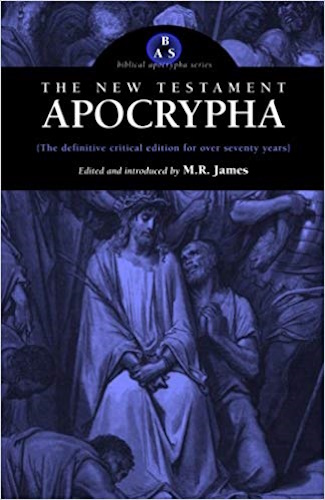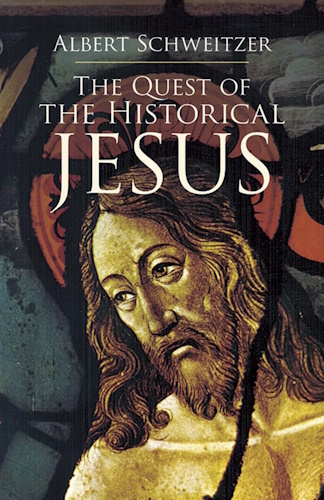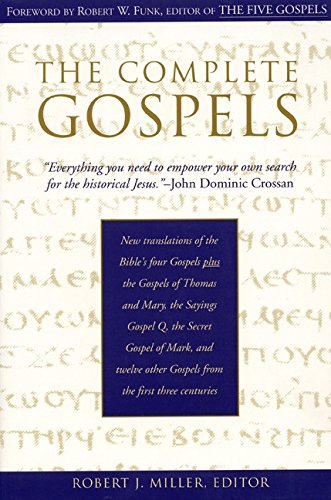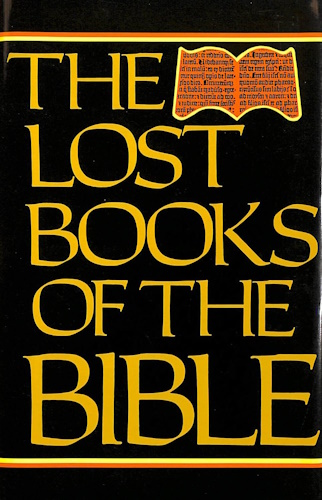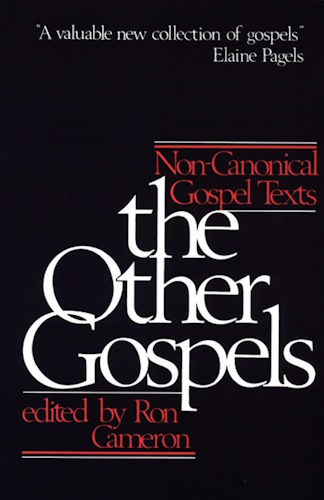
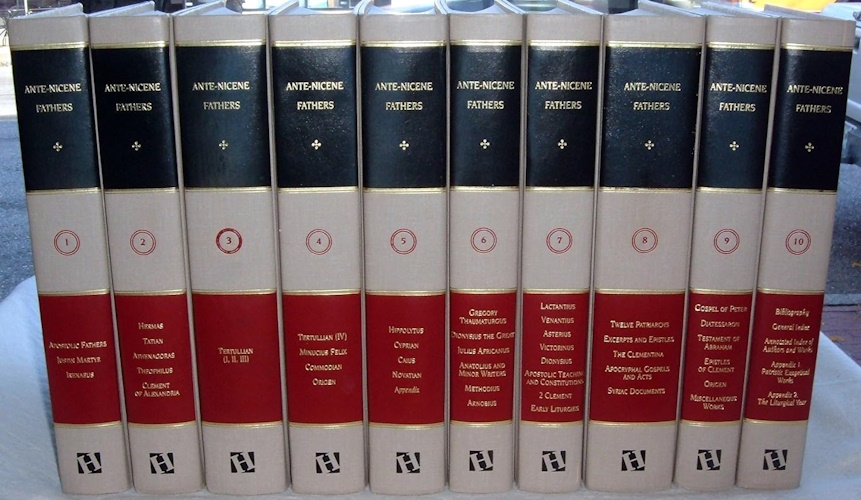
The Pastor of Hermas
Book Third-Similitudes
Similitude Second
From: Early Church Fathers 38 Volumes
Ante-Nicene Fathers: The Writings of the Fathers down to a.d. 325 Vol. II
edited by
Rev. Alexander Roberts, D.D., and James Donaldson, LL.D.
Translated by the Rev. F. Crombie, M.A.
The Pastor of Hermas
SIMILITUDE SECOND.
As the Vine is Supported by the Elm, So is the Rich Man Helped by the Prayer of the Poor.
As I was walking in the field, and observing an elm and vine, and determining in my own mind respecting them and their fruits, the Shepherd appears to me, and says, "What is it that you are thinking about the elm and vine?" "I am considering," I reply, "that they become each other exceedingly well." "These two trees," he continues, "are intended as an example for the servants of God." "I would like to know," said I, "the example which these trees you say, are intended to teach." "Do you see," he says, "the elm and the vine?" "I see them sir," I replied. "This vine," he continued, "produces fruit, and the elm is an unfruitful tree; but unless the vine be trained upon the elm, it cannot bear much fruit when extended at length upon the ground;251 and the fruit which it does bear is rotten, because the plant is not suspended upon the elm. When, therefore, the vine is cast upon the elm, it yields fruit both from itself and from the elm. You see, moreover, that the elm also produces much fruit, not less than the vine, but even more; because,"252 he continued, "the vine, when suspended upon the elm, yields much fruit, and good; but when thrown upon the ground, what it produces is small and rotten. This similitude,253 therefore, is for the servants of God—for the poor man and for the rich." "How so, sir?" said I; "explain the matter to me." "Listen," he said: "The rich man has much wealth, but is poor in matters relating to the Lord, because he is distracted about his riches; and he offers very few confessions and intercessions to the Lord, and those which he does offer are small and weak, and have no power above. But when the rich man refreshes254 the poor, and assists him in his necessities, believing that what he does to the poor man will be able to find its reward with God—because the poor man is rich in intercession and confession, and his intercession has great power with God—then the rich man helps the poor in all things without hesitation; and the poor man, being helped by the rich, intercedes for him, giving thanks to God for him who bestows gifts upon him. And he still continues to interest himself zealously for the poor man, that his wants may be constantly supplied. For he knows that the intercession of the poor man is acceptable and influential255 with God. Both, accordingly, accomplish their work. The poor man makes intercession; a work in which he is rich, which he received from the Lord, and with which he recompenses the master who helps him. And the rich man, in like manner, unhesitatingly bestows upon the poor man the riches which he received from the Lord. And this is a great work, and acceptable before God, because he understands the object of his wealth, and has given to the poor of the gifts of the Lord, and rightly discharged his service to Him.256 Among men, however, the elm appears not to produce fruit, and they do not know nor understand that if a drought come, the elm, which contains water, nourishes the vine; and the vine, having an unfailing supply of water, yields double fruit both for itself and for the elm. So also poor men interceding with the Lord on behalf of the rich, increase their riches; and the rich, again, aiding the poor in their necessities, satisfy their souls. Both, therefore, are partners in the righteous work. He who does these things shall not be deserted by God, but shall be enrolled in the books of the living. Blessed are they who have riches, and who understand that they are from the Lord. [For they who are of that mind will be able to do some good.257]"
251 The Vatican reads: "Unless this vine be attached to the elm, and rest upon it, it cannot bear much fruit. For, lying upon the ground, it produces bad fruit, because it is not suspended upon the elm."
252 The Vatican here makes Hermas interrupt the Shepherd, and ask, "How greater than the vine?"
253 [Based on Jas. i. 9–11, 27, and ii. 1–9: introducing the heathen world to just ideas of human brotherhood, and the mutual relations of the poor and the rich.]
254 The translation of the text is based on the Palatine. Lips. Reads: "When the rich man fills out upon the poor." Hilgenfeld amends this: "When the rich man recovers breath upon the poor." Neither gives sense. The Æthiopic has: "But if the rich man lean on the poor;" and the Greek of Hilgenfeld might mean: "When the rich man recovers his breath by leaning on the poor." The Vatican is quite different: "When, therefore, the rich man helps the poor in those things which he needs, the poor man prays to the Lord for the rich man, and God bestows all blessings upon the rich man, because the poor man is rich in prayer, and his prayer has great merit with God. Then the rich man accordingly assists the poor man's things, because he feels that he is fully heard (exaudiri) by the Lord; and the more willingly and unhesitatingly does he give him every help, and takes care that he wants for nothing. The poor man gives thanks to God for the rich man, because they do their duty in respect to the Lord (a Domino)."
255 [I note this use of the word "influential," because it was formerly denounced as an Americanism.]
256 [Luke xii. 42.]
257 The sentence in brackets is not in Lips. It is taken from Pal.
The Pastor of Hermas - Book Third.—Similitudes.
Similitude Second..
As the Vine is Supported by the Elm, So is the Rich Man Helped by the Prayer of the Poor.
![]()
![]()
-
Urantia Book, 44:0.11 - The Celestial Artisans
Never in your long ascendancy will you lose the power to recognize your associates of former existences. Always, as you ascend inward in the scale of life, will you retain the ability to recognize and fraternize with the fellow beings of your previous and lower levels of experience. Each new translation or resurrection will add one more group of spirit beings to your vision range without in the least depriving you of the ability to recognize your friends and fellows of former estates.
-
Princess Bride 1987 Wallace Shawn (Vizzini) and Mandy Patinkin (Inigo Montoya)
Vizzini: HE DIDN'T FALL? INCONCEIVABLE.
Inigo Montoya: You keep using that word. I do not think it means what you think it means. -
Urantia Book, 117:4.14 - The Finite God
And here is mystery: The more closely man approaches God through love, the greater the reality -- actuality -- of that man. The more man withdraws from God, the more nearly he approaches nonreality -- cessation of existence. When man consecrates his will to the doing of the Father's will, when man gives God all that he has, then does God make that man more than he is.
-
Urantia Book, 167:7.4 - The Talk About Angels
"And do you not remember that I said to you once before that, if you had your spiritual eyes anointed, you would then see the heavens opened and behold the angels of God ascending and descending? It is by the ministry of the angels that one world may be kept in touch with other worlds, for have I not repeatedly told you that I have other sheep not of this fold?"
-
Urantia Book, Foreword - 0:12.12 - The Trinities
But we know that there dwells within the human mind a fragment of God, and that there sojourns with the human soul the Spirit of Truth; and we further know that these spirit forces conspire to enable material man to grasp the reality of spiritual values and to comprehend the philosophy of universe meanings. But even more certainly we know that these spirits of the Divine Presence are able to assist man in the spiritual appropriation of all truth contributory to the enhancement of the ever-progressing reality of personal religious experience—God-consciousness.
-
Urantia Book, 1:4.3 - The Mystery Of God
When you are through down here, when your course has been run in temporary form on earth, when your trial trip in the flesh is finished, when the dust that composes the mortal tabernacle "returns to the earth whence it came"; then, it is revealed, the indwelling "Spirit shall return to God who gave it." There sojourns within each moral being of this planet a fragment of God, a part and parcel of divinity. It is not yet yours by right of possession, but it is designedly intended to be one with you if you survive the mortal existence.
-
Urantia Book, 1:4.1 - The Mystery Of God
And the greatest of all the unfathomable mysteries of God is the phenomenon of the divine indwelling of mortal minds. The manner in which the Universal Father sojourns with the creatures of time is the most profound of all universe mysteries; the divine presence in the mind of man is the mystery of mysteries.
-
Urantia Book, 1:4.6 - The Mystery Of God
To every spirit being and to every mortal creature in every sphere and on every world of the universe of universes, the Universal Father reveals all of his gracious and divine self that can be discerned or comprehended by such spirit beings and by such mortal creatures. God is no respecter of persons, either spiritual or material. The divine presence which any child of the universe enjoys at any given moment is limited only by the capacity of such a creature to receive and to discern the spirit actualities of the supermaterial world.
-
Urantia Book, 11:0.1 - The Eternal Isle Of Paradise
Paradise is the eternal center of the universe of universes and the abiding place of the Universal Father, the Eternal Son, the Infinite Spirit, and their divine co-ordinates and associates. This central Isle is the most gigantic organized body of cosmic reality in all the master universe. Paradise is a material sphere as well as a spiritual abode. All of the intelligent creation of the Universal Father is domiciled on material abodes; hence must the absolute controlling center also be material, literal. And again it should be reiterated that spirit things and spiritual beings are real.
-
Urantia Book, 50:6.4 - Planetary Culture
Culture presupposes quality of mind; culture cannot be enhanced unless mind is elevated. Superior intellect will seek a noble culture and find some way to attain such a goal. Inferior minds will spurn the highest culture even when presented to them ready-made.
-
Urantia Book, 54:1.6 - True And False Liberty
True liberty is the associate of genuine self-respect; false liberty is the consort of self-admiration. True liberty is the fruit of self-control; false liberty, the assumption of self-assertion. Self-control leads to altruistic service; self-admiration tends towards the exploitation of others for the selfish aggrandizement of such a mistaken individual as is willing to sacrifice righteous attainment for the sake of possessing unjust power over his fellow beings.
-
Urantia Book, 54:1.9 - True And False Liberty
How dare the self-willed creature encroach upon the rights of his fellows in the name of personal liberty when the Supreme Rulers of the universe stand back in merciful respect for these prerogatives of will and potentials of personality! No being, in the exercise of his supposed personal liberty, has a right to deprive any other being of those privileges of existence conferred by the Creators and duly respected by all their loyal associates, subordinates, and subjects.
-
Urantia Book, 54:1.8 - True And False Liberty
There is no error greater than that species of self-deception which leads intelligent beings to crave the exercise of power over other beings for the purpose of depriving these persons of their natural liberties. The golden rule of human fairness cries out against all such fraud, unfairness, selfishness, and unrighteousness.
